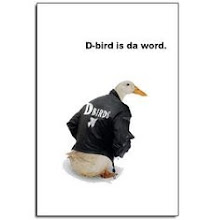By the very nature of our work as teacher librarians, we evaluate books on their age-suitability. It may be simply to decide if it's worth buying, or will answer a need or fill a gap. One does need to be aware of age-suitability - although certainly in high school I gleefully buy picture books that our students enjoy, there are many that work well for more than young children. Occasionally I may put a note in the back of a more challenging book to say that the teacher librarian needs to be consulted if it's being borrowed by a student in the junior years, so we can talk about it first.
It's understandable that adult bookbuyers would appreciate an age-indication on a book, particularly if they aren't especially familiar with children's literature. It's a fraught question, however. To take one example from here, Skulduggery Pleasant has been enjoyed by students in Year 7 and Year 12 - not sure how you'd 'age-band' it, and whether age banding it would make it more successful, or less, as it could deter readers (when a book that's intended as a 'reader' for students with reading difficulties telegraphs this too clearly, that's a cold hand of death on its usefulness or appeal in any other way - questions after each chapter, for instance, signal WORK, NOT FUN).
Phillip Pullman (author of The Golden Compass /Northern Lights and so forth) has decided opinions on the matter. He wrote an article for The Guardian :
And I know that the readers of my most "difficult" books include people of seven as well as people of 90. The same books. To write as well as I can, and then find someone at the door turning readers away, is something I find simply repugnant. It's based on a one-dimensional view of growth, which regards growing older as moving along a line like a monkey climbing a stick: now you're seven, so you read those books; and now you're nine, so you read these.
But growth isn't like that. We grow by getting bigger and including more things, and a child of 11 still includes the nine-year-old and the seven-year-old he was. And if he wants to read a book he might love, it's a bitter shame if some distant adult, out of what she perceives as her commercial necessity, puts him off by labelling it with an age that makes him feel babyish, or exposes him to ridicule.
...and has started an organisation to oppose it , No To Age Banding - there's a long long list of supporters on the site, including authors and librarians, parents and readers. There's another analysis/discussion of the matter here (on the SmartBitchesTrashyBooks blog, which often enough has some very thoughtful discussions on book matters, and can be utterly hilarious, whether or not the books it focuses on most are your recreational cuppa. And it does mention YA books from time to time. And read the comments section, which is an active source of engaged discussion on the SBTB blog).
The Bookseller.com has some entries on age-guidance too.
Subscribe to:
Post Comments (Atom)






















No comments:
Post a Comment